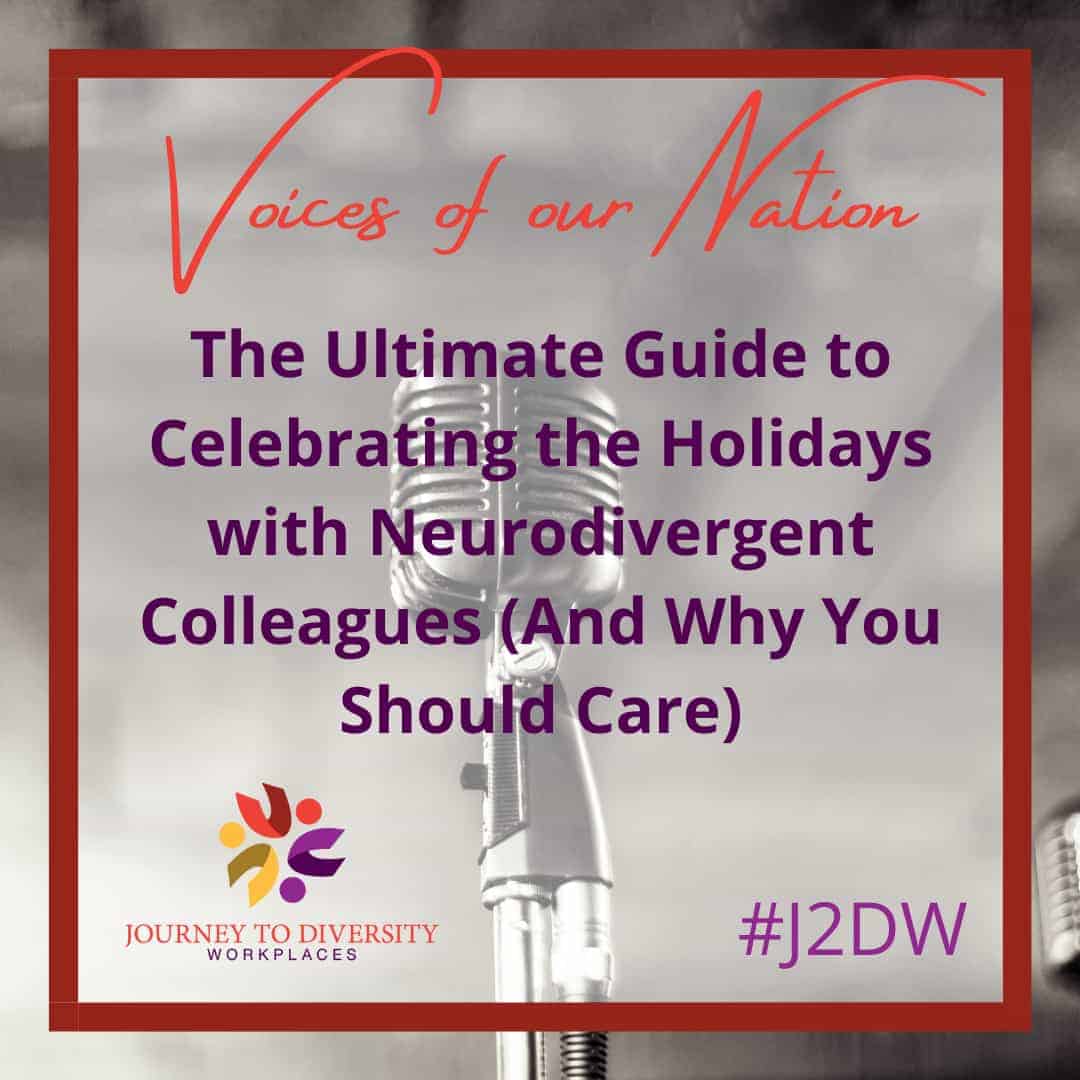As the bright lights roll in and the mist of joy flutters in the air, there comes a chirp in your step and excitement for the well-deserved break waiting for you ahead. For many, the holidays are a time to get away from the hectic frames of everyday life and escape to a short-lived utopia. For others, this is a time to catch up on the moments of life they missed out on, pick up a hobby they’ve been meaning to try, or simply be present and attentive in their moments with family. A season as such hopes to invoke feelings of gratitude, peace, joy, and love for all that we have, but for some, this reality might be difficult to maintain.
Walking into work in December, most neurodivergent people are met with bright, flickering holiday decorations, maybe gentle music in the background, loud colours and decorations, and bold scents of the holiday season. The attributes that help define the holiday season for many neurotypical people can simultaneously disturb the experience of those with neurodivergence.
Things such as sensory overload– which includes sensory food aversions regarding taste, texture, and smell–, social anxiety, a sense of dread and overwhelming feelings, overstimulation, and anxiety surrounding perfectionism and social acceptance, are likely to make an appearance (Neurodiversity in the workplace, 2022). Granted, this is not to say that every neurodivergent person experiences neurodivergence in the same manner. Still, many of these feelings have been common for a significant number of people under this category.
I can already sense the fear and panic through the screen as readers probably shuffle in their seats, sick with anxiety or fear, that I will suggest completely shutting down holiday celebrations in the workplace. But not to worry, it’s not always a one-or-the-other situation; compromises can always be made, and it is not a jarring, uncomfortable act to be more equitable and accommodating to others in a shared environment.
For instance, when setting up holiday decorations, consider the perspectives of your fellow neurodivergent colleagues and decorate in accordance with their limits as well. Flickering lights can be replaced with soft lights that don’t flicker, and things with strong scents can be put in a secluded area rather than the main common room (Doyle, 2020). Another main point is the privilege of a choice. Showing people that they have autonomy over their holiday experience can take off a great deal of anxiety, pressure, and urgency that follows this period of time. Giving them the freedom to eat other foods if they want, with respect to their sensory issues, or creating a no-pressure, low-stakes gift exchange event that is not mandatory or taken extremely seriously, are some ways to make this holiday season a more joyful time for all (Doyle, 2020).
In the end, however, a direct conversation is always the best way to ensure you are truly meeting the needs of others. Asking them about ways you can best support them during this season, getting educated on any accommodations that other companies have used, and being perceptive of the social norms that dictate this month are good starting points. The month of December can be a daunting time for many, so it is important for employers and employees to be kind, compassionate, and open-minded so everyone can soak in the joys of this festive month.
Reference
Doyle, N. (2020, December 18). A neuroinclusive Christmas. Forbes. https://www.forbes.com/sites/drnancydoyle/2020/12/18/a-neuroinclusive-christmas/?sh=719ee0673c99
Neurodiversity in the workplace: The Next Frontier in the world of work. The Adecco Group. (2022, August 31). https://www.adeccogroup.com/future-of-work/latest-insights/neurodiversity-in-the-workplace-the-next-frontier-in-the-world-of-work/
This article was written by summer student Ilesha Prabhudesai. This article was funded by the Government of Canada,

